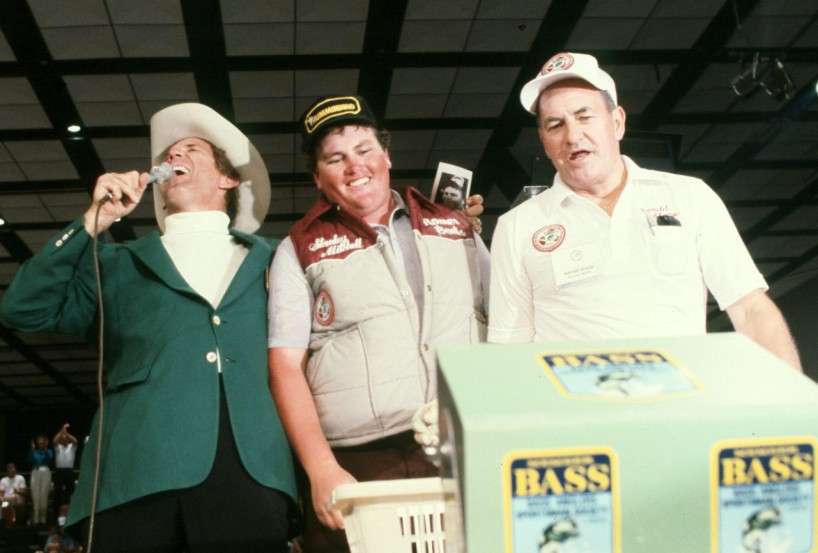
Most sports are dominated by the young. Baseball players tend to peak in their late 20s or early 30s. The same is true for basketball players. If you're an NFL running back, your best years are probably behind you by the time you're 28. And female gymnasts tend to hang it up about the time they're old enough to drive themselves to practice.
Yes, there are exceptions. Some athletes reach prominence extremely early or stay on the stage long after their contemporaries are gone. Several Olympians have earned medals after the age of 65 … or even 70, but only in shooting and equestrian events. For sports as physically demanding as professional bass fishing — where you balance on one foot for eight hours in the rain, sun, heat or cold and make thousands of casts — it's rare to see anyone excel into the years when most are considering retirement.
On the other hand, the very young are rarely successful in national tournaments. The last time bass fishing saw a teenage phenom was … well … never.
Part of the problem is a lack of on-the-water experience. Every big-name pro will tell you that there's no substitute for time on the water, and spending all day, every day on the water is impossible with things like high school or day jobs in the way. While rookies in the big stick-and-ball sports are typically in their late teens or early 20s, most Bassmaster Elite Series rookies are in their 30s, and many are in their 40s.
The youngest angler ever to win a B.A.S.S. event was David Dudley. He was just past 20 years old when he won the 1995 Bassmaster Top 100 on the James River. Four other anglers have won B.A.S.S. events under the age of 23, including Jonathon VanDam and Gary Klein. The youngest winner of an Elite event was Casey Ashley, who was 23 when he won in 2009 at Smith Mountain Lake. Fewer than a dozen anglers have even qualified for Elite competition before the age of 25, and only Jordan Lee (in 2015) was able to crack the Top 30 in the Toyota Bassmaster Angler of the Year (AOY) points race.
Stanley Mitchell was just 21 when he won the 1981 Bassmaster Classic. It's a mark that has stood the test of time. In fact, there's usually no one in the Classic field who's even eligible to best it.
When it comes to AOY, the youngest champ ever was Kevin VanDam, 24 years, seven months, three days, in 1992. Tim Horton was three years older when he won in 2000. KVD won again in 1996 at the age of 28. Only one other angler claimed an AOY title in his 20s, and that was Larry Nixon in 1980. He was 29.
In 46 years of AOY, only four anglers have won it in their 20s. This is not a young man's game in the conventional sense. It takes time to qualify for the Elite Series, time to get familiar with the waters and time to adjust to the lifestyle. For most, that's around 30.
Why so "late"? As it is so often, the answer is money. It's not easy to make a living as a bass pro, not easy to earn the entry fees, not easy to gain the sponsorships and not easy to develop the business acumen necessary to be successful. If you're a teen with a real shot at a career in the NFL, NBA or MLB, you've got a crowd of supporters cheering you on and a pot of gold at the end of the rainbow if you get there. But if you're a young angler with a dream, getting there is only part of the battle.
Taking a look at the Elite Series rookie lists, the age at which anglers enter the sport's top circuit bears out the fact that it's a tough road for youngsters. There have been as many rookies over the age of 55 (two) as there have been under the age of 20, and almost as many over the age of 40 (31 in all) as under the age of 30 (just 34).
With all of the emphasis on high school and college tournament fishing, will we see a shift to younger rookies, younger winners and younger AOYs? Don't hold your breath. All the 30- and 40-somethings still look pretty strong.
Next time we'll take a look at the other end of the age spectrum — older bass pros.

